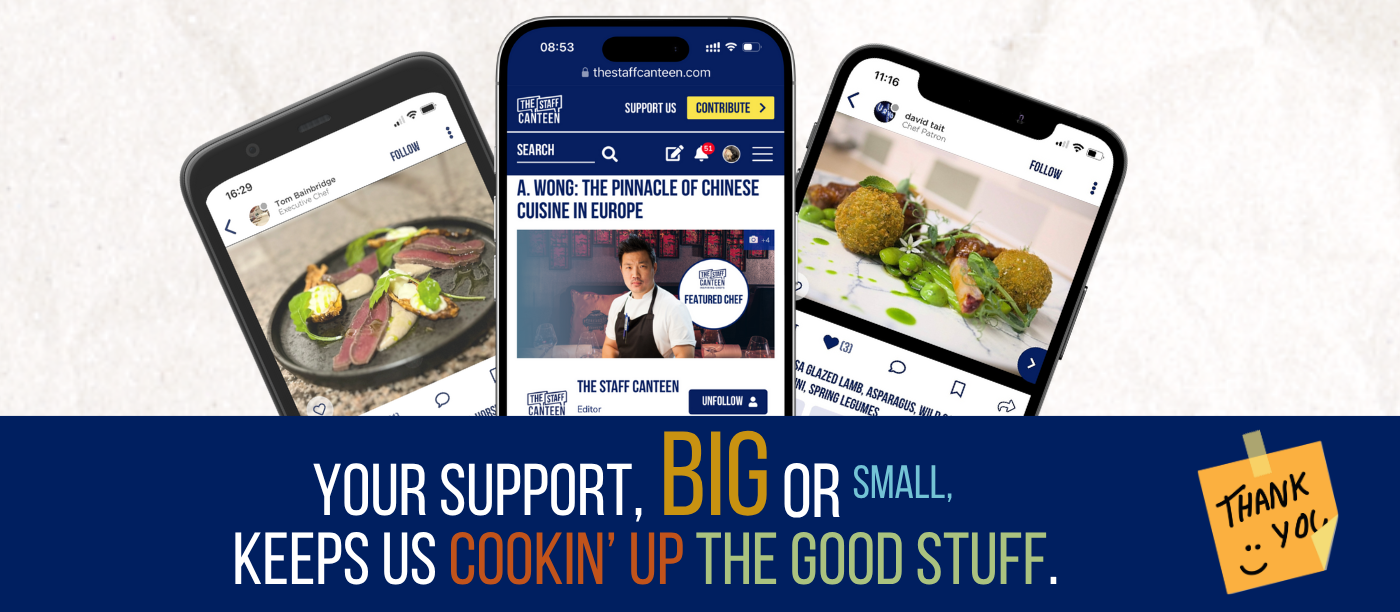Win a signed copy of How to Cook Meat Properly by Paul Foster & Brett Connor

Paul Foster, chef owner of Stratford-upon-Avon’s only Michelin-starred restaurant, Salt, hopes that his new books will do more than help people become "beyond reasonable" home cooks:
He wants his books to help people understand what he sees as the importance of meat as part of a sustainable, environmentally-sound food system, and of a nutritionally-sound diet.
The Book
The book, which is the first in a series of six, written by Paul and the head of the Salt Cookery School, development chef Brett Connor was inspired by one of Paul's big frustrations.
In the era of social media, he said, "there’s a tutorial for everything. The downside to that is that there’s a large majority of people teaching people how to cook who can’t cook themselves, and skills are already an issue in the industry.”
Therefore, when it came to writing his book, he wanted to make something that was of a high-standard, skills-focused, and would remain relevant for a long time.
Each item in the book is graded according to difficulty and features step-by-step instructions, photos and detailed descriptions.
Paul said: “Even home cooks can have a go at everything, you don’t need specialist equipment to achieve the more advanced things, you just need the skills – which you can learn from the book.”
That having been said, the chef believes the book's teachings are enough to challenge even more experienced chefs.
“Each recipe has got a 'simple,' 'challenging' and 'advanced' level, so there’s three levels [of difficulty]," to adapt according to one's skillset.
To eat meat or not to eat meat, that is not the question
Releasing such a book was always going to cause a stir in the context of questions around the environmental impact of meat, with many people striving to reduce their consumption.
Paul is aware of this fact, and, he said, and doesn't oppose many of the arguments made by the pro-vegan movement, "about how we do eat too much meat and

a lot of people are eating the wrong sort of meat - taking it down the proper regenerative farming root, biodiverse farming, that sort of thing.”
While he sees why some people might choose to adopt a vegan diet, he said, “I think there’s a lot of misinformation out there from both sides, from the meat side and from the vegan side," and that it is more about “getting the right consistent message” across so that people are aware of what they are eating, why they are eating it and the impact it has on the environment.
“It’s not just about dismissing the other side and it becoming polarised. It’s about understanding what the important issues are.”

Paul’s argument is environmentally-driven, as, he explained, “I obviously don’t have an issue with animals dying to be on my plate," he said. "Vegans do and I totally respect that."
However, he added, "if the whole world went vegan, it could be catastrophic for the environment because only a third of the planet is arable for farming, and you can’t just farm vegetables and vegetables and vegetables on the same land year after year, because you ruin the soil.”
However, the chef is well aware of the negatives that come from the meat industry, namely factory farming and the negative impact that high meat consumption has had on the environment.
“Generally, quality is the best marker for the environment. If you are buying the best quality meat, then it’s been treated better, it’s in a better environment, it’s got more space – beef, for instance, is grass-fed – so it becomes naturally more carbon neutral,” he said.
“The message I would always say to people is, buy the best meat you can. Yes it’s more expensive, but eat less of it."
“If we ate red meat every day then it would be catastrophic. If we went vegan every day then again, I think, catastrophic. There has to be a middle ground.”

For 17 years, The Staff Canteen has been the meeting place for chefs and hospitality professionals—your stories, your skills, your space.
Every recipe, every video, every news update exists because this community makes it possible.
We’ll never hide content behind a paywall, but we need your help to keep it free.
If The Staff Canteen has inspired you, informed you, or simply made you smile, chip in £3—less than a coffee—to keep this space thriving.
Together, we keep the industry connected. Together, we move forward.















